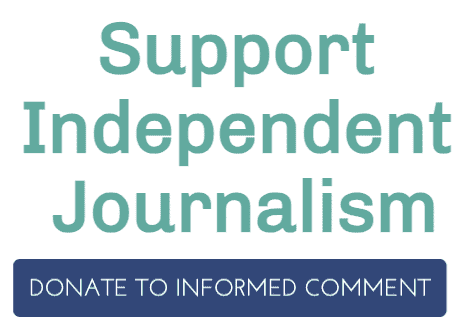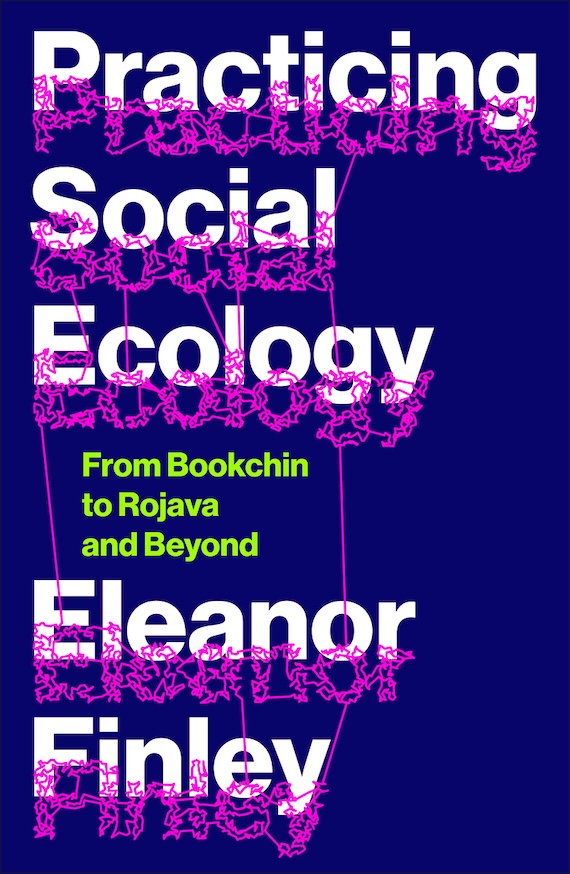Review of Eleanor Finley Practicing Social Ecology: From Bookchin to Rojava and Beyond, Pluto Press, 2025, by Peter G. Prontzos.
Vancouver (Special to Informed Comment; Feature) – Murray Bookchin was one of the most significant thinkers – and activists – in the 20th century, beginning with his pioneering ecological analysis, Our Synthetic Environment, which was published over six decades ago (1962).
Over the next three decades, Bookchin, who was born and raised in New York City, wrote about an impressively wide range of issues, including the nature of cities, anthropology, the Spanish Civil War, technology, social movements, and political philosophy, and his work had a huge impact on a variety of political, social, and environmental movements. He coined the phrase, “social ecology” to denote the central element in his world view: that the ultimate source of humanity’s domination and exploitation of nature is based on the continuing domination and exploitation of human beings by those in positions of power in society.
While there are obviously many forms of domination and oppression, Bookchin focused primarily on two intersecting types: the political and the economic – exemplified by capitalism and the state (which he described as, “the cesspool of bourgeois parliamentarianism”). Another key element in Bookchin’s thought was the idea of, “unity in diversity” – the notion that both nature and human societies are healthier and more flourishing when there is harmony between the various elements in the system, and its overall structure. His suggestions as to how such a society can be democratically organized form the basis of his notion of “communalism”, starting with the smaller units of society, e.g. co-ops, neighborhoods, and cities, with power flowing upward to larger confederations.
One of Bookchin’s primary insights is that, due to the unprecedented productive power of modern technology, all scarcities in the world — food, medical care, education, even free time — were all artificial and unnecessary.
He also argued that even those of us living in the richer countries are oppressed, not just by the need to sell our time and creativity to survive, but also because we have lost sight of our true, compassionate humanity and have been conditioned to give up our dreams. The ultimate source of these problems is, in Bookchin’s view, the result of the global capitalist economy, which prioritizes corporate greed over both people and nature.
An informative discussion of his life and ideas can be found in Ecology or Catastrophe: The Life of Murray Bookchin (Oxford), written by Janet Biehl, who was his companion in his last two decades.
His influence has spread even further since his death in 2006 and had been put into practice in a number of places around the world – most notably in Kurdish-controlled areas in the Near East. Nobody has described these movements and ideas better than Eleanor Finley in her, Practicing Social Ecology: From Bookchin to Rojava and Beyond.
Finley, a researcher in the Department of Anthropology at the University of Massachusetts, begins her exploration of Social Ecology by alerting the reader to the fact that Bookchin’s ideas can be quite complex, and that understanding, “his work requires commitment and patience and, often, a robust background in philosophy, Marxian theory, sociology, and anthropology.” Yes – but that should not deter anyone from giving it a try, and it is for this reason that Finley’s book (and the glossary that she includes) is so helpful, as it offers readers a way to understand and connect many of Bookchin’s ideas, as well as explaining how groups around the world are trying to use them in their organizing and community building.

Or by check:
Juan Cole
P. O. Box 4218,
Ann Arbor, MI 48104-2548
USA
(Remember, make the checks out to “Juan Cole” or they can’t be cashed)
Chapter 2, for instance, outlines the major elements of Bookchin’s ideas, to provide the background needed to understand the theories and practices of the groups discussed. The next chapter focuses on the more personal and interpersonal dynamics that are necessary to create viable and effective movements and societies. Another section considers the idea of popular assemblies and direct democratic governance, in which power moves from the bottom up. “Popular assemblies lie at the heart of social ecology.”
To illustrate this approach, she also provides case studies of these efforts in places like the United States, Spain, Chile, Poland, Mexico, and especially in the Kurdish region of the Near East known as Rojava . She explains that:
“In 2012, the Rojava Revolution became the first major uprising to invoke Bookchin’s vision, bringing confederal direct democracy to the center of global geopolitics and redefining ‘democratization’ in the Middle East.” This movement was sparked when Abdullah Öcalan, the leader of the Kurdistan Workers’ Party (PKK), read some of Bookchin’s works. Finley writes:
“Declaring Bookchin his teacher (momosta), a designation of utmost respect in Kurdish culture, Öcalan articulated a philosophy of democratic federalism alongside a concrete program of democratic autonomy for Kurdish majority regions.”
…
“Since the dissolution of the Ottoman Empire, the four borders of Syria, Iraq, Iran, and Turkey have split their homeland. Nationalism in these countries has led to government policies of cultural erasure and genocide against the Kurds. Kurdish repression is one of the many ethno-nationalist conflicts in the Middle East tied to capitalist development, growing socio-economic inequality, and ecological degradation…”
One of the defining elements of the Rojava Revolution is the role played by women. For instance, the Kurds have two citizen-led militias, one of which is the Women’s Protection Units (YPJ), which has fought off attacks from Syria, the so-called Islamic State, and especially Turkey, (which “consistently ranks among the top human rights abusers”).
Equality between women and men, hevalti, not only includes defense and decision-making, but it also means that, “daily chores such as cooking and cleaning are split evenly between women and men…” Hevalti is also “a revolutionary generosity of spirit”.
It’s important to stress that the Rojava Revolution is just the most well-known of these attempts to apply Bookchin’s ideas. Finley points out that, “Legacies of self-governance can be found in every corner of the globe”, and that in the last 20 years, countless civil society projects have been created…including environmental and ecological initiatives, women’s collectives and cooperatives, community-based justice, artists collectives, student unions, popular education projects, and village communes.”
Never miss an issue of Informed Comment: Click here to subscribe to our email newsletter! Social media will pretend to let you subscribe but then use algorithms to suppress the postings and show you their ads instead. And please, if you see an essay you like, paste it into an email and share with friends.
Looking at the larger picture, it is vital that promoting direct democracy, human rights for all, sustainable economies, healthy social connections, and educational opportunities (especially in affinity groups) for everybody to fulfil their best potential, (what Aristotle called, “eudaimonia”) will take a lot of time, patience, and effort. Bookchin understood that, “revolutionaries have to revolutionize themselves”. And as Finley elaborates: “Even the best democratic procedure cannot make up for the dysfunctional habits we learn while living under capitalism.” That is why she also points out the need for “emotional healing” as part of the revolutionary process.
Indeed, Finley writes that an activist from the Pacific Northwest told her that projects usually fall apart, “due to people’s inability to handle their own trauma.” But healing cannot be done alone, which is why working with other people in a supportive and non-judgemental environment is so important. She also references the work of Dr. Gabor Maté, whose most relevant work is his, The Myth of Normal. [My review of this book can be found on P. 45 here.]
Finley sums it all up with this insight at the end of the book: “Reconciliation with nature is, at the end of the day, a reconciliation with ourselves.”
And at the risk of stating the obvious, if people fail to create truly democratic and ecological societies, then the future is dark indeed. As Martin Luther King understood, the choice is “chaos or community.”
In that context, one of the last things that Bookchin said to me when I visited him in Burlington, Vermont, may be even truer now: “These days, I’m not trying to make a revolution”, he said. “I’m just trying to preserve The Enlightenment”.
These days, we need to do both, and Finley’s book is an excellent guide to doing just that.



 © 2026 All Rights Reserved
© 2026 All Rights Reserved